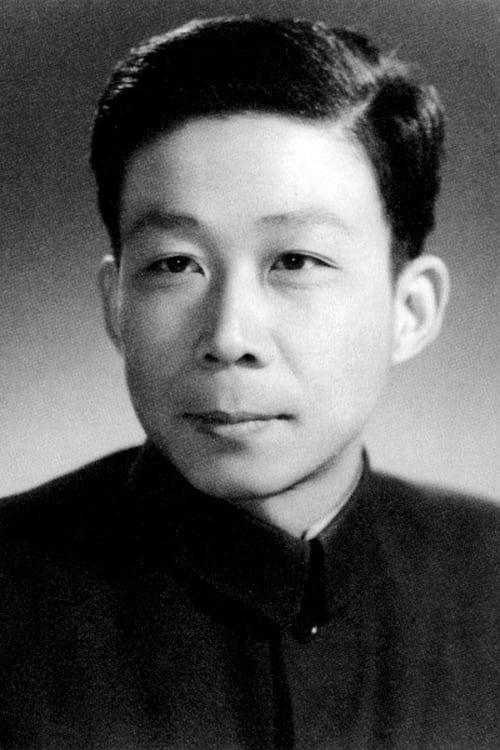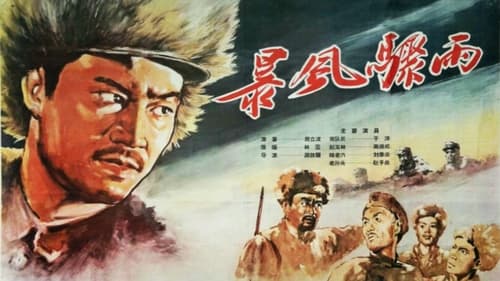
Xie Tieli
Рождение : 1925-12-27, Huaiyin, Jiangsu province, China
Смерть : 2015-06-19
История
Тели Се — китайский кинорежиссёр, уроженец уезда Хуайинь провинции Цзянсу. Тели Се родился в бедной семье и был вынужден оставить обучение в начальной школе. В 1938 году он присоединился к своему брату, артисту местной театральной труппы. В 1940 году он поступил в школу политических кадров военно-морского флота Хуай Новой четвертой армии. С 1945 года руководил художественной труппой 30-й армии. В 1950 году он был переведен в Пекин, чтобы подготовить кадры в «Институте исполнительских искусств» (предшественник Киноакадемии) в качестве учителя и заместителя директора актерского факультета. С 1956 года был переведён на Пекинскую киностудию и начал работать ассистентом режиссера. Официально стал режиссером в 1959 году. Первым его фильмом был «Безымянный остров» (снят в 1959-м, выпуск на экран – 1960), затем он поставил «Ураган» (1961). В 1963 году он адаптировал и снял фильм «Февраль, ранняя весна» по новелле Жоу Ши «Февраль», в очередной раз раскрывший художественный талант и уникальный художественный стиль режиссёра. В 1988 году он снял дилогию «Сон в красном тереме», получив приз за лучшую режиссуру на 10-м всекитайском конкурсе «Золотой петух», а также был удостоен премии «Сто цветов». Его фильмы исследуют психологию и чувства персонажей. Тели Се вступил в Коммунистическую партию Китая в 1942 году. Он был членом комитета Всекитайского собрания народных представителей по вопросам образования, науки, культуры и здравоохранения и председателем Китайской ассоциации кино и телевидения.

Director

Director

Writer

Director
On his way to Mecca for his pilgrimage, a young Orphan goes to Beijing, where is starts to learn about the art of jade crafting.

Writer
Base on "Strange Stories from a Chinese Studio". an Chinese classic A love story between a young scholar and a spirit of a dead girl.

Director
Base on "Strange Stories from a Chinese Studio". an Chinese classic A love story between a young scholar and a spirit of a dead girl.

Director

Director

Director

Director

Director

Director

Screenplay
A Chinese serial feature film, released in 6 parts (8 episodes) between 1988 and 1989. The film adapts the major events and incidents of the novel of the same name, depicting the fate of Jia family.

Director
A Chinese serial feature film, released in 6 parts (8 episodes) between 1988 and 1989. The film adapts the major events and incidents of the novel of the same name, depicting the fate of Jia family.

Writer
When Gu Tingting, a young worker in a silk factory in Suzhou, is suddenly notified by a court in Shanghai that she will inherit a large sum of money from her aunt as her adopted daughter, her cousin Feng files a lawsuit against her backed by a forgery. Judge Ping senses foul play, and meets with Tingting, who begins recounting her past.

Director
When Gu Tingting, a young worker in a silk factory in Suzhou, is suddenly notified by a court in Shanghai that she will inherit a large sum of money from her aunt as her adopted daughter, her cousin Feng files a lawsuit against her backed by a forgery. Judge Ping senses foul play, and meets with Tingting, who begins recounting her past.

Director

Director
Set in early 20th century. Yuan Shih-kai is forced by Japan to sign on the twenty-one demands and transfers the possession of Shandong province to Japan from German. General Cai of Yunnan province decides to uprise and lead a punitive expedition against Yuan. A famous courtesan Xiao Feng Xian admires Cai's prestige and is arrested for covering Cai before uprising.

Director
In the winter of 1948, the Huaihai battlefield. The telephone operator Yuxiang (played by Huang Xiaolei) rescued the rural girl Yuxiang (played by Li Xiuming) who was about to hang herself during the mission. Yuxiang has nothing to do with her, and she is willing to accept her personally and tell her sufferings of being homeless.

Director
With the fishermen's life on the southeastern coast in the early 1960s as its background, the film depicts a group of militia women who work both as fisher women and fighters defending their homes and the motherland.

Director
Toward the end of the Cultural Revolution, the ballet Red Detachment of Women was adapted to a Beijing opera.

Director
A revolutionary model opera that focuses on ferreting out class enemies: those who did not belong the hallowed ranks of the gongnongbing 工农兵, the workers-peasants-soldiers.

Director
Adaptation of a lesser known to Western world, yet wildly popular Peking Opera developed during the Cultural Revolution under the leadership of Jiang Qing.

Director
Taking Tiger Mountain was the very first model film produced during the Chinese Cultural Revolution (1966-1976). Set during the civil war in 1946, it follows a detachment of the People's Liberation Army in Mandchuria as they are fighting a group of bandits hiding in the mountains. Based on a novel from the 50s, Taking Tiger Mountain was first a revolutionary opera before being made into film by director Xie Tieli.

Writer

Director

Writer
По рассказу Жоу Ши "Февраль". 1920-е года. Китайский интеллигент хочет собраться с мыслями в одиночестве, уезжает в деревню и устраивается на работу учителем. Он встречает обнищавшую вдову своего бывшего однокашника. Он пытается помочь ей и принимает ее дочь в свою школу. По деревне ходят слухи о том, что он якобы соблазнил вдову; не вынеся клеветы, та кончает жизнь самоубийством. Учитель уезжает из деревни и решает примкнуть к революционному движению, чтобы изменить мышление своих соотечественников.

Director
По рассказу Жоу Ши "Февраль". 1920-е года. Китайский интеллигент хочет собраться с мыслями в одиночестве, уезжает в деревню и устраивается на работу учителем. Он встречает обнищавшую вдову своего бывшего однокашника. Он пытается помочь ей и принимает ее дочь в свою школу. По деревне ходят слухи о том, что он якобы соблазнил вдову; не вынеся клеветы, та кончает жизнь самоубийством. Учитель уезжает из деревни и решает примкнуть к революционному движению, чтобы изменить мышление своих соотечественников.

Director
Экранизация одноимённого романа Чжоу Ли-бо. После поражения японцев в 1945 году 8-я Освободительная армия направила в деревни северо-восточного Китая отряды для проведения земельной реформы. Разъясняя крестьянам необходимость этих перемен, отряды сталкивались со значительными трудностями. Им предстояло воспрепятствовать влиянию и угрозам со стороны вооружённых крупных землевладельцев, мешало также различие во взглядах и среди самих членов отрядов. Пережив острый кризис и поняв, на чьей стороне правда, крестьяне объединяются против землевладельцев и их гоминдановских приспешников; земельная реформа проводится в жизнь, и силы гоминдана терпят поражение.

Director
О мужестве и стойкости китайских военных моряков в их борьбе с чанкайшистами.

Narrator
About the way of life in the East, in China, during the months before spring. An early spring.













